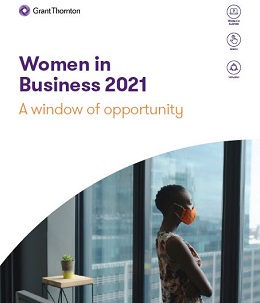-
Transactional advisory services
Find out more about the transactional advisory services of Grant Thornton Financial Advisory Services
-
Valuations
Find out more about the valuations services of Grant Thornton Financial Advisory Services
-
Mergers and acquisitions
Find out more about the merger and acquisition services of Grant Thornton Financial Advisory Services
-
Forensic and investigation services
Find out more about the forensic and investigation services of Grant Thornton Financial Advisory Services
-
Recovery & reorganisation
Find out more about the Recovery & reorganisation services of Grant Thornton Financial Advisory Services
-
Business risk services
Find out more about the business risk services of Grant Thornton Financial Advisory Services
-
Business consulting
Find out more about the business consulting services of Grant Thornton Financial Advisory Services
-
Capital market
Capital market
-
Corporate and business tax
Find out more about our corporate and business tax services.
-
Direct international tax
Find out more about our direct international tax services.
-
Global mobility services
Find out more about our global mobility services.
-
Indirect international tax
Find out more about our indirect international tax services.
-
Transfer pricing
Find out more about our transfer pricing services.
-
Litigation
Our lawyers and accountants can manage all defense measures provided not only by the Italian law, but also by EU regulations and conventions
-
Family business
Find out more about our Family business services.
-
Legal
The client can be assisted in every need and with the same care both on important operations or disputes and on simple matters

-
Back office outsourcing
Find out more about our Back office outsourcing services
-
Business process outsourcing
Find out more about our business process outsourcing services.
-
Compilation of financial statements
Find out more about our compilation of financial statements services.
-
Tax compliance
Find out more about our tax compliance services.
-
Electronic invoicing
Find out more about our electronic invoicing services
-
Electronic storage
Electronic storage is an archiving procedure that guarantees the legal validity of a digitally stored electronic document
-
Revaluation of corporate assets
Find out your civil and fiscal revaluation of tangible, intangible and financial assets
-
Payroll
Complete and customized payroll service, integrated with digital solutions and compliant with Italian and international regulations.
-
Labor consultancy
We help Italian and international companies manage all aspects of their workforce.
-
HR & Payroll Advisory Services
We review contracts, payroll, and risks for extraordinary transactions and we assess tax, labor, and safety risks in outsourcing contracts.
-
Extended services
We provide integrated digital tools to simplify HR management.
-
HR Infinity Portal
The HR Infinity Portal is Zucchetti’s platform designed to centralize communication between the company and its employees.
-
Cybersecurity
GT Digital helps clients structure information security management internal functions, also through partially or totally outsourced functions
-
Agile and Programme Management
GT Digital provides support in the adoption and implementation of different portfolio management
-
Robotic Process Automation
Our “BOT Farm” can rely on digital workers able to help clients in routine activities, allowing employees to deal with more added-value activities
-
Data strategy and management
GT Digital can support clients in seizing the opportunities offered by Big Data, from the definition of strategies to the implementation of systems
-
Enterprise Resource Planning
We support clients in selecting the most appropriate ERP System according to their specific needs, helping them also understand licensing models
-
IT strategy
GT Digital supports clients in making strategic choices, identifying innovation opportunities, comparing themselves with competitors
-
IT service management
We can support with software selection and with the implementation of dedicated tools for the management of ICT processes
-
DORA and NIS 2
The entry into force of the DORA Regulation and NIS2 represents a major step towards the creation of a harmonised regulatory framework

Milan, 5 March 2020 – According to the annual Women in Business* report, edited by Grant Thornton international consultancy network, in 2021 women hold 31% of senior management positions, increasing by 2 percentage points compared to the previous year, despite Covid-19 has affected and slowed down economies all over the world.
The passing of the 30% tipping point is considered as a historical and important goal, since this tipping point is indicated in the Report as the minimum figure necessary to change decision-making processes in companies. All macro-areas at a lobal level, except for the APAC area (28%) exceeded such 30% tipping point.
From a geographical perspective, Africa registered the highest figure, with 39% of businesses in which women hold leading positions, while from an industry perspective, healthcare, education and social services, and services to citizens are the winning industries, registering 39%, while the last places in the ranking are held by the industrial and oil&gas sectors, where only 26% of women hold leadership positions.
Another encouraging datum that arises from the Report is the kind of roles that female leadership is holding. Compared to previous year, the Grant Thornton research registered an increase in the number of female CEOs (+6%, now at 26%), of female CFOs (+6%, now at 36%), and of female COOs (+4%, now at 22%), while the percentage of women holding more traditional senior roles slightly decreased to 38% (-2% compared to previous year), showing a falling trend for two years.
At a global level, more than two thirds of respondent businesses (69%) expect that the new working approach generated by Covid-19 (with particular reference to remote working) could positively impact the long-term career of women. Although the presence of women in leadership positions increased, there are still uncertainties on the impact of the pandemic on women, particularly on working mothers.
Data of the United Nations show that before Covid-19, women took on unremunerated household activities three times as much compared to men and the main current indicators suggest that Covid-19 is increasing even more this disparity, besides adding further responsibilities, such as childcare, home schooling in lockdown, etc.
An encouraging datum is represented by 92% of businesses, which – at a global level – state that they are implementing measures to ensure the involvement and inclusion of their employees during the negative pandemic period and, with the normalizaition of remote working, employers are becoming increasingly more flexible with regard to how, where and when their resources can perform their working activities.
As concerns the situation in Italy, CEO roles held by women decreased to 18% in 2021, compared to 23% in 2020, thus going below the Eurozone average of 21% and the average global level of 26%.
From a more general perspective, in Italy, women holding leadership positions are today 29% (+1% compared to 2020). Despite the plus sign, Italy remains behind the lines among the 30 analysed global economies. At the same time, the number of companies without any female presence in their senior management is also increasing (+2%) and is currently amounting to 23%.
 Simonetta La Grutta, Partner, Head of VAT and Head of People Hub at Bernoni Grant Thornton comments: “The complexities that characterized 2020 and that are persisting in 2021 inevitably impact the slow emerging of women’s skills in our country.
Simonetta La Grutta, Partner, Head of VAT and Head of People Hub at Bernoni Grant Thornton comments: “The complexities that characterized 2020 and that are persisting in 2021 inevitably impact the slow emerging of women’s skills in our country.
Although the extended emergency recourse to remote working has led to a sharing of household responsibilities and, subsequently, to a forced reduction in the gap existing in work/life balance between men and women, the contraction of the economy has in fact drastically decreased the actual career development opportunities. This is in net contrast with the real needs of businesses and organizations in general. Dealing with and managing crisis scenarios requires involving the best resources, as well as those skills and responsiveness that only fully inclusive decision-making structures can ensure.”
According to the Grant Thornton report, it is important to keep incentivizing concrete actions aimed at eliminating gender diversity and creatin the right conditions to allow women to grow in leadership positions, in a dynamic and competitive working environment. This is, in fact, an important change for any business, as it encourages different ways of thinking and shows new growtn opportunities: an essential approach in a rapidly evolving global economic context.
*The “Women in Business” report is part of the Grant Thornton International Business Report (IBR), a mid-market business survey launched in 1992, which provides insights on the opinions and expectations of more than 10,000 business leaders in 30 countries all over the world. The findings in this Report were derived from online and telephone interviews and surveys conducted between October and December 2020 with chief executive officers, chief financial officers, chairs, and other senior decision-makers from all industry sectors.

